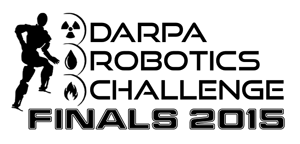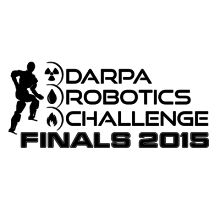
Robohub.org
Five high school students win Robots4Us Video Contest — and a trip to the DRC Finals

Five short videos prepared by U.S. high school students have been selected as winning entries in DARPA’s “Robots4Us” video contest and will be featured at a June 7 invitational workshop on the future of robotics. DARPA launched the contest to stimulate student consideration of the societal implications of robotics.
Winners created compelling short videos about the future of robots in society and will get the chance to discuss their ideas and see current cutting-edge robots in action.
The student winners, whose videos look ahead to a future when robots will play ever more important roles in fields ranging from agriculture to medicine to emergency response, will travel as DARPA’s guests to the DARPA Robotics Challenge Finals, to be held in Pomona, Calif., on June 5 and 6. There, state-of-the-art robots prepared by more than 20 top robotics organizations from around the world will compete for $3.5 million in prizes as they attempt to complete humanitarian assistance tasks on a simulated disaster-response course.
The next day, the student winners will participate in a day-long DARPA workshop in Pomona, “From Better Robots to Better Futures.” That event will feature lessons learned by the top three DRC teams, announcements of future international robotics challenges and activities, and visions offered by industry and government leaders about the ways in which robots may become integrated into society in the future. The student winners will participate in a panel discussion about their videos and offer their visions and perspectives on issues to consider. The workshop will be webcast on DARPA’s YouTube page, where the Robots4Us winning videos—approximately three minutes each—will debut that day.

“DARPA wanted to hear from the generation that will be the first to grow up and live with a wide range of robotics technologies. Their ideas about how robots might make a difference for society will shape that future,” said DARPA Director Arati Prabhakar. “We appreciate the thought these students put into their creations. And we were inspired by their visions about the influence robotics could have in our businesses, our homes, and in the military.”
Robots4Us contest student winners are:
- Kristina Argao, Hagatna, Guam (Teammate: Riezzalyn Viray)
- Ben Chrepta, Rochester, Minn. (Teammate: Alden Giedraitis)
- Hector Cruz, Cedar City, Utah
- Shiloh Curtis, Santa Cruz, Calif.
- Atticus Jones, New York, N.Y. (Teammates: Kentaro Jones and Jigme Tinley)
A panel of judges with expertise in robotics technology, videography, science communication, and social and ethical issues evaluated the video submissions. The judges based their scores on how clearly each entrant communicated his or her vision of the future; creativity, thoughtfulness, originality and appeal; and technical quality.
Stay tuned in here to learn more about the Robots4Us contest and the DARPA Robotics Challenge, and to view the student-developed videos and watch the live webcast of the “Better Robots: Better Futures” workshop on June 7. More detail about DARPA’s goals for the Robots4Us contest is also available in this launch video:
The DRC finals will occur June 5-6, 2015 at Fairplex in Pomona, California. The event will require robots to attempt a circuit of consecutive physical tasks, with degraded communications between the robots and their operators; Twenty-five of the top robotics organizations in the world will gather to compete for $3.5 million in prizes as they attempt a simulated disaster-response course.
This post originally appeared on the DARPA Robotics Challenge blog.
tags: c-Events, Competition-Challenge, DARPA, DRC





